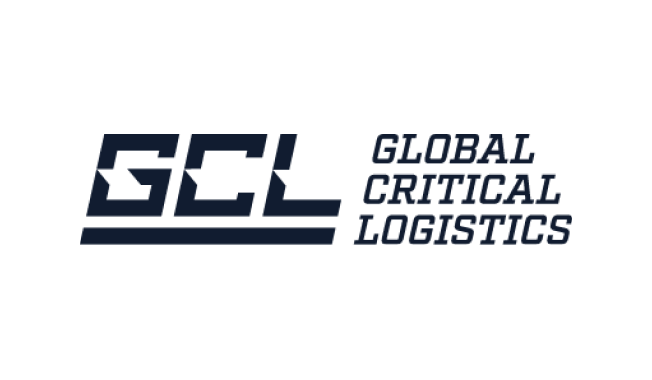Paul Teske interviewed on Supply Chain in Mergers & Acquisitions
What The Supply Chain Disruption Means for M&A
Mergers & Acquisitions
By Demitri Diakantonis
11 January 2022
Labor shortages are adding to mounting global supply chain problems. There is a lack of dock workers to unload ships and truck drivers to transport products. The result is a bottleneck of ships waiting to dock at ports. But the good news is that there are technologies that can help solve these problems, and PE firms want to invest in them. Mergers & Acquisitions spoke to several PE dealmakers about this, including Ridgemont Equity Partners‘ Kelly Lineberger; HC Private Investments‘ Matt Moran; and ATL Partners‘ Paul Teske.
In November, Ridgemont Equity Partners invested in eShipping, a tech-enabled provider of managed transportation logistics services to mid-sized shippers. The target’s software helps with trucking brokerage, and last-mile and warehousing services. With the lack of labor available, companies need all the technology help they can get.
“The exponential growth in e-commerce activity and shortages in the labor market have placed significant pressure on carriers and shippers and created ample opportunity for 3PL companies to provide outsourced services to help solve supply chain challenges,” says Ridgemont principal Kelly Lineberger, referring to third-party logistics providers. “As we’ve experienced through Ridgemont’s portfolio companies, the ability to leverage technology and provide multiple services can be very differentiating — and helps with both customer retention and unlocks value in strategic M&A.
All About Automation
Automation is helping businesses grapple with labor scarcities and supply chain challenges. Businesses have been gradually adding products such as robotics to their operation processes to fulfill more orders quickly and accurately. The combination of e-commerce sales soaring from the pandemic and labor shortages has created problems in logistics and accelerated the need to streamline.
“In this inflationary environment, both input and labor costs are increasing,” says Matt Moran, a managing partner at HC Private Investments. “This forces businesses to focus on reducing costs in their manufacturing or logistics process to offset higher input costs. There are strong growth opportunities for businesses in the automation space as a result, especially ones that can help reduce manufacturing or delivery costs and improve efficiency.”
In November, HCPI acquired Customized Distribution, a logistics company that serves the restaurant industry. CDI offers warehousing and last-mile distribution services to over 1,100 quick service restaurants across 12 states.
Strategic buyers are also looking to tackle supply chain issues through technology. American Eagle Outfitters acquired Quiet Logistics for $350 million in November. Quiet Logistics offers retailers and consumer brands automated fulfillment services. The acquisition is part of AEO’s strategy to expand its supply chain and logistics platform and the company will eventually offer those services to other retailers.
“There’s a structural lack of supply chain capacity to meet the growing demand for e-commerce and significant opportunity for companies helping to solve this challenge,” says Paul Teske, co-founder and partner of ATL Partners. “Also, logistics businesses who have maintained high levels of service through this challenging environment will command significant interest from shippers for future partnership and will generate high return opportunities for private equity.”
More Tech Deals
“You can’t be in logistics without a plan to make a significant investment in technology and investments in greater asset tracking, automated load matching and pricing, transportation management systems and route optimization,” says Teske.
Uber Freight, a subsidiary of Uber Technologies Inc. (NYSE: UBER), acquired Transplace from TPG Capital for approximately $2.25 billion in November. As partial financing for this transaction, Abu Dhabi Growth Fund, D1 Capital, and GCM Grosvenor invested $550 million in Uber Freight. Transplace offers logistics management software that is designed to help businesses with trucking brokerage, payments and rates and regulation.
“The last 12 to 18 months have illustrated that the global supply chain is increasingly complex and in need of reliable and efficient third-party providers to problem solve and leverage technology to improve transparency,” adds Lineberger “3PL providers with sophisticated technology solutions can offer an enhanced user experience for shippers with improved visibility and data and insights regarding the movement of shipments within the supply chain, from carrier selection, tracking, payments and customer service. With better technology and data, transportation providers can more efficiently access and communicate with customers and optimize their asset-based networks. The more scaled 3PL platforms that have strategically invested in their technology are well-positioned to execute M&A and lead the consolidation of a fragmented logistics industry.”
Tackling Driver Shortages
There is a massive truck driver shortage plaguing the logistics industry and there is no single solution in sight to fix it anytime soon. The U.S. has a dearth of 80,000 drivers and that figure is on pace to double by 2030, according to the American Trucking Associations.
A combination of aging drivers heading into retirement, those who left the industry during the pandemic, a lack of work/life balance, and a lack of time to train new drivers are among the factors contributing to the problem.
What could remediate the issue? “Particularly in the logistics space, there are a lot of companies trying to create a driverless truck delivery solution as well as introduce automation into warehouse operations,” says Moran. “Given the lack of available labor in the industry, commercial truck drivers and warehouse employees specifically, this would help bridge the labor gap and improve the supply chain disruptions.”
In November, Aurora Innovation, a maker of self-driving technology, completed its SPAC merger with Reinvent Technology Partners Y. Aurora plans to launch its driverless commercial trucking business sometime in 2023.
“Ridgemont expects that there will continue to be attractive investment opportunities across multiple 3PL offerings, for both platform and add-on acquisitions, across managed transportation, brokerage, freight forwarding, fulfillment and last-mile delivery, as well as related software offerings, logistics financial technology and next-generation models,” says Lineberger.
Whenever there is an industrywide problem, it creates business opportunities, and those businesses will always attract buyers.
https://www.themiddlemarket.com/feature/what-the-supply-chain-disruption-means-for-ma
